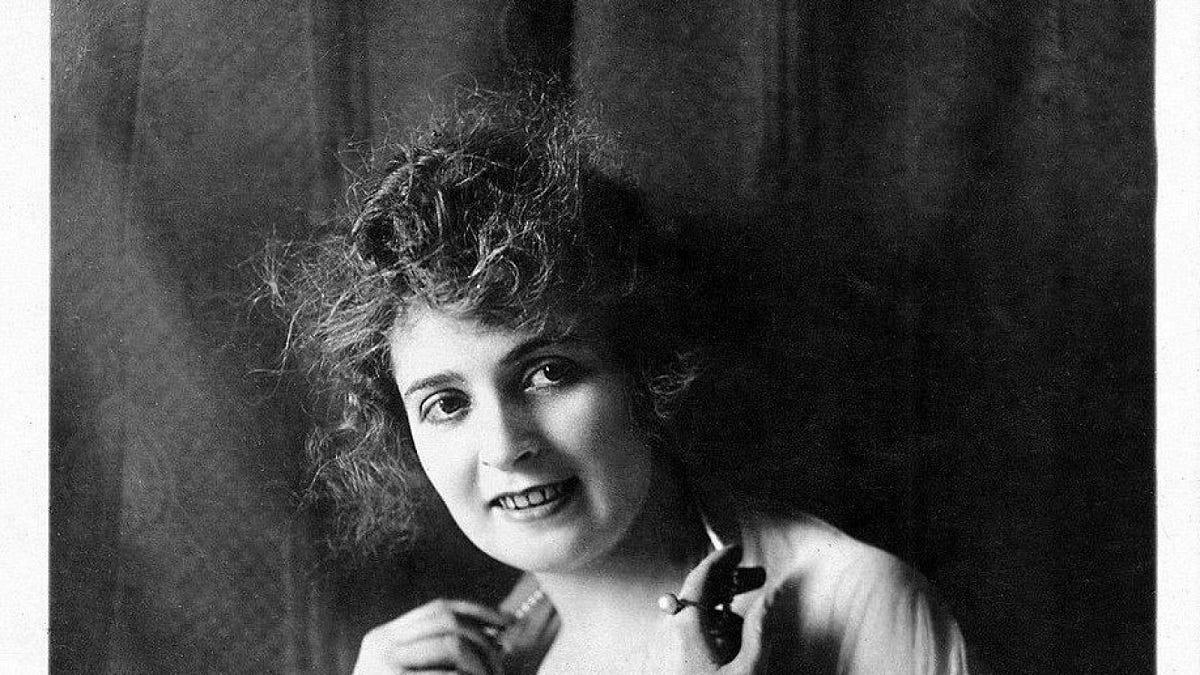The narrative of Myrtle Gonzalez, often overshadowed in the annals of cinema history, represents a remarkable chapter in the early 20th century’s burgeoning film industry. Her story, interwoven with the fabric of silent cinema, offers a fascinating glimpse into the life of a pioneering actress whose contributions laid foundational stones for future generations in Hollywood. This article aims to shed light on the life, career, and legacy of Myrtle Gonzalez, exploring her journey from a stage actress to becoming known as the “First Latina of Hollywood,” her impact on the representation of women and Latinas in cinema, and the enduring legacy she left behind.
Early Life and Rise to Stardom
Born on September 28, 1891, in Los Angeles, California, Myrtle Gonzalez was introduced to the world of performing arts at a young age. Her father, a musician, and her mother, a stage actress, nurtured her talents, leading Gonzalez to develop a passion for acting. By age 16, she was already making her mark on the stage, showcasing her skills in various productions. Her vibrant personality and natural acting ability quickly caught the attention of early filmmakers, who were eager to capture her charisma on the silver screen.
In the early 1910s, as the film industry took its first steps, Gonzalez transitioned from stage to cinema, embarking on a career that would make her one of the silent era’s most beloved actresses. Her film debut is often cited as a turning point in her career, showcasing her ability to convey deep emotion without words, a crucial skill in silent cinema. Over the next few years, Gonzalez’s star continued to rise, with the actress appearing in over 80 films, a staggering number by today’s standards.
Pioneering Roles and the “First Latina of Hollywood”
Myrtle Gonzalez’s filmography is notable for its volume and the diversity of roles she portrayed. At a time when women’s roles in films were often limited to simplistic archetypes, Gonzalez broke the mold, playing strong, independent characters that resonated with audiences. Her performances in films such as “The Girl from the Woods” and “Hearts and Flowers” showcased her versatility and strength as an actress, challenging the norms of female representation on screen.
Moreover, Gonzalez is celebrated as the “First Latina of Hollywood,” a title that underscores her significance in the representation of Latinas in the film industry. Despite the challenges posed by the era’s prevailing attitudes toward race and ethnicity, Gonzalez’s talent transcended barriers, paving the way for future generations of Latina actresses. Her success is a testament to her skill and determination, highlighting the importance of diversity and representation in cinema.
Personal Life and Legacy
Off-screen, Myrtle Gonzalez led a life as compelling as the characters she portrayed. Her personal life, marked by its highs and lows, was characterized by her resilient spirit. In 1917, at the height of her career, Gonzalez married actor and director Allen Watt. Tragically, her life was cut short when she succumbed to the Spanish flu pandemic in 1918 at the age of 27. Her untimely death sent shockwaves through the film industry, robbing cinema of one of its brightest stars.
Despite her brief career, Gonzalez’s impact on Hollywood and beyond is undeniable. She not only broke ground for women and Latinas in cinema but also contributed to shaping the silent film era’s narrative techniques. Today, her legacy lives on, not only through the surviving films she starred in but also as a symbol of perseverance and trailblazing spirit in the face of adversity.
Conclusion
Myrtle Gonzalez’s story is a poignant reminder of the transformative power of cinema and the individuals who contribute to its evolution. Her pioneering work in the early days of Hollywood set a precedent for the representation of women and Latinas in film, challenging stereotypes and opening doors for future generations. As we look back on the contributions of early cinema stars, Gonzalez’s legacy stands as a testament to the enduring impact of those who dare to break barriers and forge new paths. Though largely untold, her story remains a significant chapter in the history of film, inspiring filmmakers and actors alike to pursue their passions with courage and resilience.
In the grand tapestry of Hollywood’s history, Myrtle Gonzalez may not be as widely recognized as some of her contemporaries, but her contributions are no less significant. As the film industry grapples with issues of representation and diversity, Gonzalez’s life and career offer valuable lessons in perseverance and giving voice to the voiceless. Through her films and the stories she told on screen, Myrtle Gonzalez left an indelible mark on cinema, which will continue to inspire generations.






